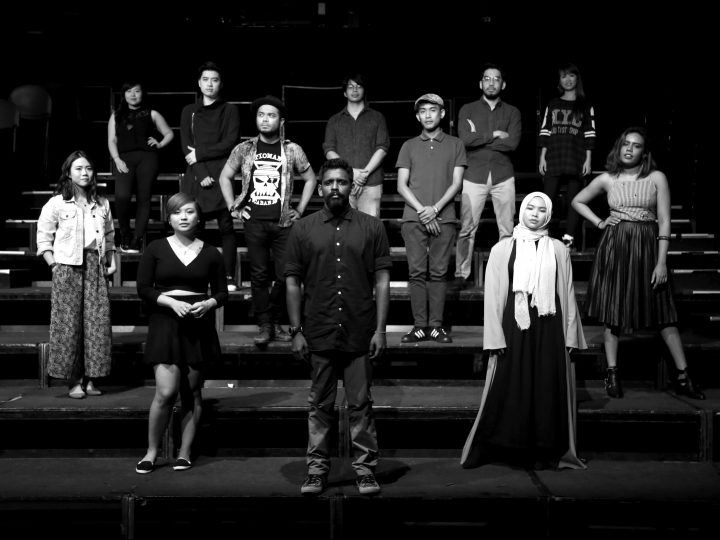The Fine Line Between Cultural Appropriation and Appreciation
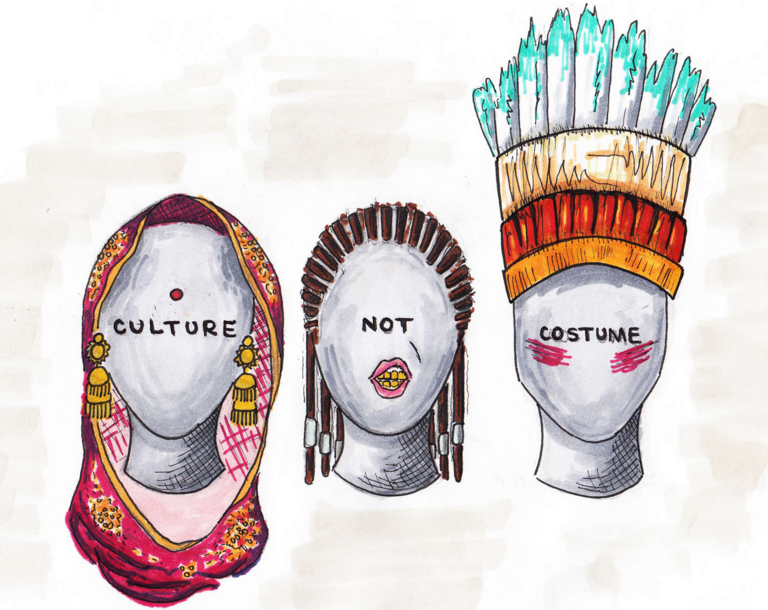 Thirsty for JUICE content? Quench your cravings on our Instagram, TikTok and WhatsApp
Thirsty for JUICE content? Quench your cravings on our Instagram, TikTok and WhatsApp
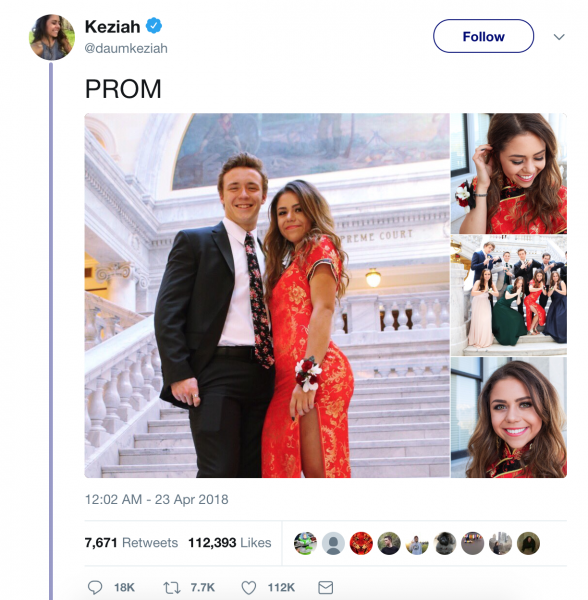
A lot of things have broken the internet over the years into a flurry of banter, memes but also very heated arguments and debates. On 22nd April, 18 year old teen Keziah Daum in Utah posted on Twitter a set of photos of every high-schoolers big milestone; Senior Prom. What was different about her post to the thousands on the internet? Keziah Daum was wearing a traditional Chinese dress qipao/cheongsam, noting that she is in fact white and not any part Asian.
Many quickly called Daum out and criticised her for cultural appropriation. But also, like any Twitter argument, there were many who defended her. Daum established that she was not committing cultural appropriation and didn’t think she was in the wrong, as she did her research of the traditional dress and admires and respects the Chinese culture behind it. But is she the one who has the call on whether or not her actions were culture appropriation? Or the Asian-American community? Or the Chinese? Before you frantically scroll down to the comments section to voice your opinion on this matter, please continue reading.
Cultural appropriation is nothing new, netizens have dragged celebrities such as Katy Perry, Miley Cyrus, Pharrell Williams and even Beyoncé through the mud if they found a whiff of what could be cultural appropriation throughout the years. No one is spared from this.

I should put out a disclaimer now and say that I’m not gonna be like Buzzfeed (still love your quizes though) and just show you the tea that went down through screen shots. If you do want to know though there are many other sites that have already done that. But I wanted to take a different approach and I feel like this whole prom dress “situation” is a good gateway for all of us to discuss the real elephant in the room. What can we classify as cultural appropriation and how can we differentiate it from cultural appreciation? Is cultural appropriation valid if the population from the native country are “fine with it”? I’m not saying that it is a subject that we can totally solve right off the bat, but discussions and being open to the other side of the argument will be able to help us all not explode on the internet in angry tweets/subtweets or whatever.
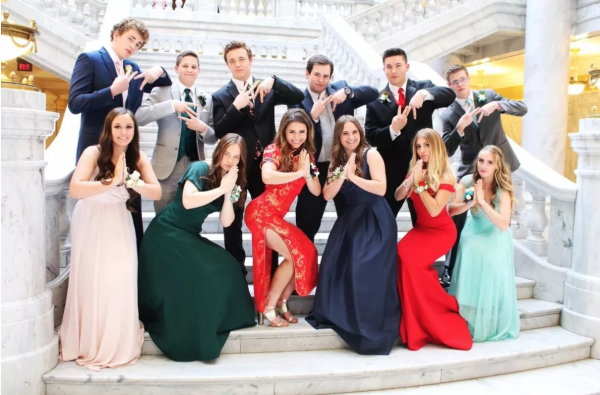
Now, this particular “news” has been sitting on the internet for about a month now and I wanted to wait it out to observe the different perspectives individuals had on this “controversial dress.” This post definitely polarised the internet into two separate sides, so instead of arguing about which one is “right” or “wrong” let’s explore both sides and have a healthy discussion without getting angry for once 🙂
Cultural Appropriation: she’s a white girl wearing a traditional Chinese dress. For prom- a western event for senior highschoolers. She’s not Asian. Herself and a group of friends chose a pretty questionable pose.
Cultural Appreciation: the argument based off the survey of people in China who celebrate Daum’s choice of using their traditional dress for prom. In turn, looking at her as a sort of an ambassador for promoting cultural acceptance and appreciation.
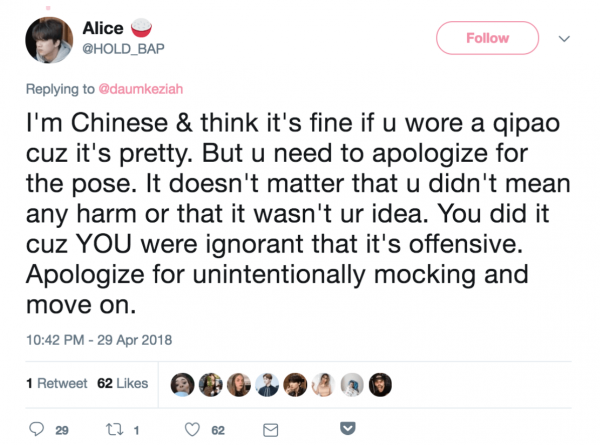
There are gaps within both these arguments; not for the content, but for those on the opposing side not being able to understand the different standpoint. No two people will initially interpret something the same way. Why? A person’s response is shaped based on their exposure, education and own experiences. The life of a Chinese teenager who has lived in China all their life will not have the same exposure and outlook on the world around them to a Chinese teenager whose family immigrated to the West. This of course seems fairly obvious, but it is so easily overlooked as most would think that because they are from the same country/same race, they would have the same mindset and opinion on things. So, who has the say on the validity of cultural appropriation in certain situations?
In the case of the dress, “pure” Asians from China who’ve endured feuding dynastic-Emperors and the not-so-sound policies of Chairman Mao, or Chinese-Americans who’ve encountered the hardships of migrating to the West, some under slave-like conditions? Spoiler alert: there isn’t really an answer. Both opinions should be heard and understood for there is a great deal of reason behind them. What people shouldn’t do is belittle those Asians who were skeptical and weary of Daum’s intention. They have every right to be skeptical and a little angry.
Just because the Chinese in China gave the A-okay doesn’t mean that we should invalidate those who thought she was appropriating their culture. To me, it is immoral to ignore and invalidate the experiences and struggle that someone has encountered at the face of racism. So, take some time to listen/read why someone would feel so strongly on their opinion instead of trying to shoot them down or calling them “too sensitive” for it. You don’t have to accept the opinion, but recognise why their opinion exists. It’s the decent human thing to do.
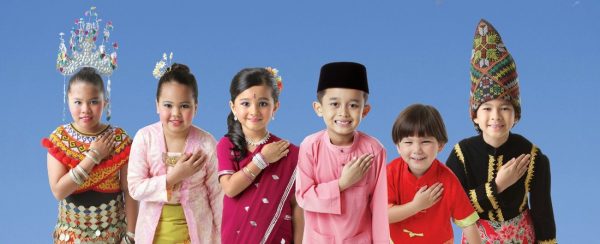
Personally, I felt very conflicted when I saw this post circulating on Twitter and mainstream news. I totally understand both sides of the arguments, the internal conflict was so bad I had an argument with myself in the shower multiple times on it.
Malaysia is home to many races–Malay, Chinese, Indian and various indigenous ethnic groups. We appreciate, celebrate and respect each other’s cultures. Malaysia is also home to many expats from all over the world–Britain, Australia, America, Korean, Japanese etc. Whilst growing up here in Malaysia, if I happened to see an expat (particularly a mat salleh) wearing a baju kurung/kebaya/our traditional clothing I always found myself to be really excited and overjoyed. To me their participation meant that they appreciated our culture and wanted to be a part of it too.
But I have also lived in Dubai many years ago, where Asians- particularly Malaysians are definitely the minority to the Arabs and mat salleh expats. I’m not gonna make this about me, but I’m just saying that I know what being a minority and experiencing passive racism feels like. To me, a lot of people who try to give the argument of “reverse racism/appropriation” or are quick to debunk the appropriation notion lack the emotional and psychological trauma that comes hand in hand with being a minority. I’m not saying it’s intentional, I personally don’t wish anybody to come face to face with racism, but we have to remember that racism still exists and minorities are always at the painful receiving end.
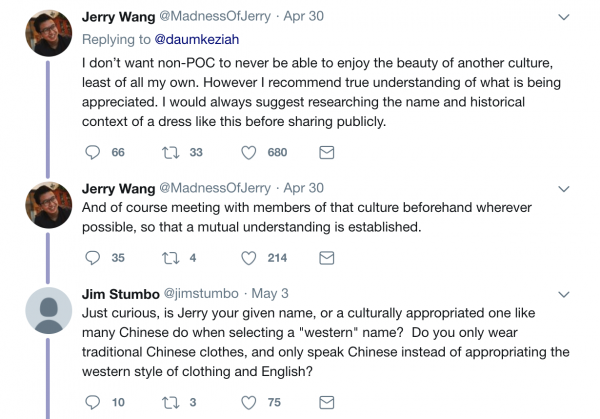
In the heat of debates, especially for this subject of “the dress” another argument arose out of the depth of bullshit shadows. For the sake of time, I’ll summarise the basis of this “argument,” they call it the “appropriation of western culture” aka: blonde hair, blue eyes, jeans, having an “english name” etc… First of all… what?
If you’re as puzzled as I was, the notion of this argument is that minorities have “appropriated” western culture as a defensive retaliation to the minorities’ cry of cultural appropriation. To me, this “argument” is completely misguided. Before you attack me for trying to take away your freedom of speech, wait. Why do I and many others think that this point of view is misguided exactly?
Colonisation. The Western world travelled the seas hundreds of years ago. Upon discovering “new” land they took it, the resources and the people. In return they propagated their western ideology and image onto us. Promoting the supposed ideal image of intelligence, beauty and righteousness (the spread of Catholicism). Was it all bad? No. But because we were “colonised” by the “superior” beings we were forced to accept it and over time it started becoming a part of our society, because well it was kinda forced onto us… They have had the narrative throughout history, they were and are still considered the “dominant culture” in society. The western world has shaped our reality through their eyes, their culture is enforced to be “norm.”

In recent times, it can be difficult to differentiate between cultural appropriation and cultural appreciation. Especially those who have experienced direct or passive racism overseas, being indirectly forced to assimilate into western culture, will find it difficult to accept that the same majority who made you feel inferior is suddenly announcing their love for Asian culture. It is a hard pill to swallow when the system that oppressed you and your culture are suddenly the mouthpieces of projecting parts of your culture that are now suddenly universally deemed worthy of celebrating. YET still having the power systematically oppress those who belong to it.
People of colour have been marginalised, minimised and been treated as inferior, cannot appropriate a culture that has predominately had the narrative and has the power to disadvantage other cultures. So no, like reverse racism, “reverse appropriation” does not exist. Westerners have never been at the receiving end of racism, to be systematically discriminated against their practice, dressing or any display of cultural traditions. It is without the struggle and emotional trauma that westerners can never truly argue “reverse racism/appropriation.” (But a lot of them still do… smh…)
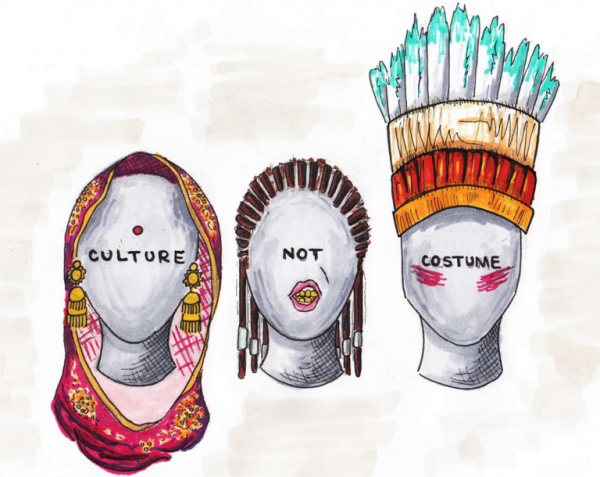
Nobody is saying that anyone who isn’t Chinese can’t wear a cheongsam/qipao. Participation doesn’t equal appropriation. The difference is how you treat and present their culture as there are a lot of history behind cultures. It goes without saying that everyone should be respectful when participating in another culture.
Is Keziah Daum’s dress a form of racism? No, it isn’t. She isn’t slandering the dress, the people and culture behind the dress or altering it to suit western beauty standards. Well, from what we can see on the surface of the internet, now, that is.
Can her actions be classed as cultural appropriation or culture appreciation? Who knows? The answer to that lies within her intention, if she genuinely appreciates the culture and continues to share the wonders of Asian culture and also defend minorities in the USA from racial segregation then that is great step towards a united future. But we can’t turn a blind eye and be ignorant to the existence of cultural appropriation, don’t be a perpetrator: educate yourself on the subject and speak up if you don’t feel it is right. Even if it’s just a freakin’ prom dress.
What do you think? Let us know in the comments!


 Get Audio+
Get Audio+ Hot FM
Hot FM Kool 101
Kool 101 Eight FM
Eight FM Fly FM
Fly FM Molek FM
Molek FM
